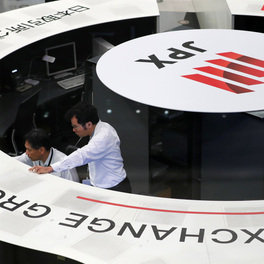Japan's leading stock market index, the Nikkei, experienced a significant momentary drop of more than 1600 yen. The reasons behind this sudden decrease are yet to be elaborated, although it's likely tied to global market trends, regional economic indicators, or local financial occurrences. This temporary dip is an important aspect of the dynamic nature of stock market performance, often influenced by various national and international factors.
Changes in the stock market, especially steep drops like this, are keenly observed in Japan. There's a strong sense of economic awareness among the public, and fluctuation in indexes such as the Nikkei can affect both domestic investments and international perceptions of the Japanese economy.
Similar to the US or EU, where Dow Jones or DAX performance are widely followed, the Nikkei's status is equally monitored in Japan. Any sudden changes spark a flurry of analysis from economists, investors, and financial institutions to understand and adapt to the new economic landscape.

